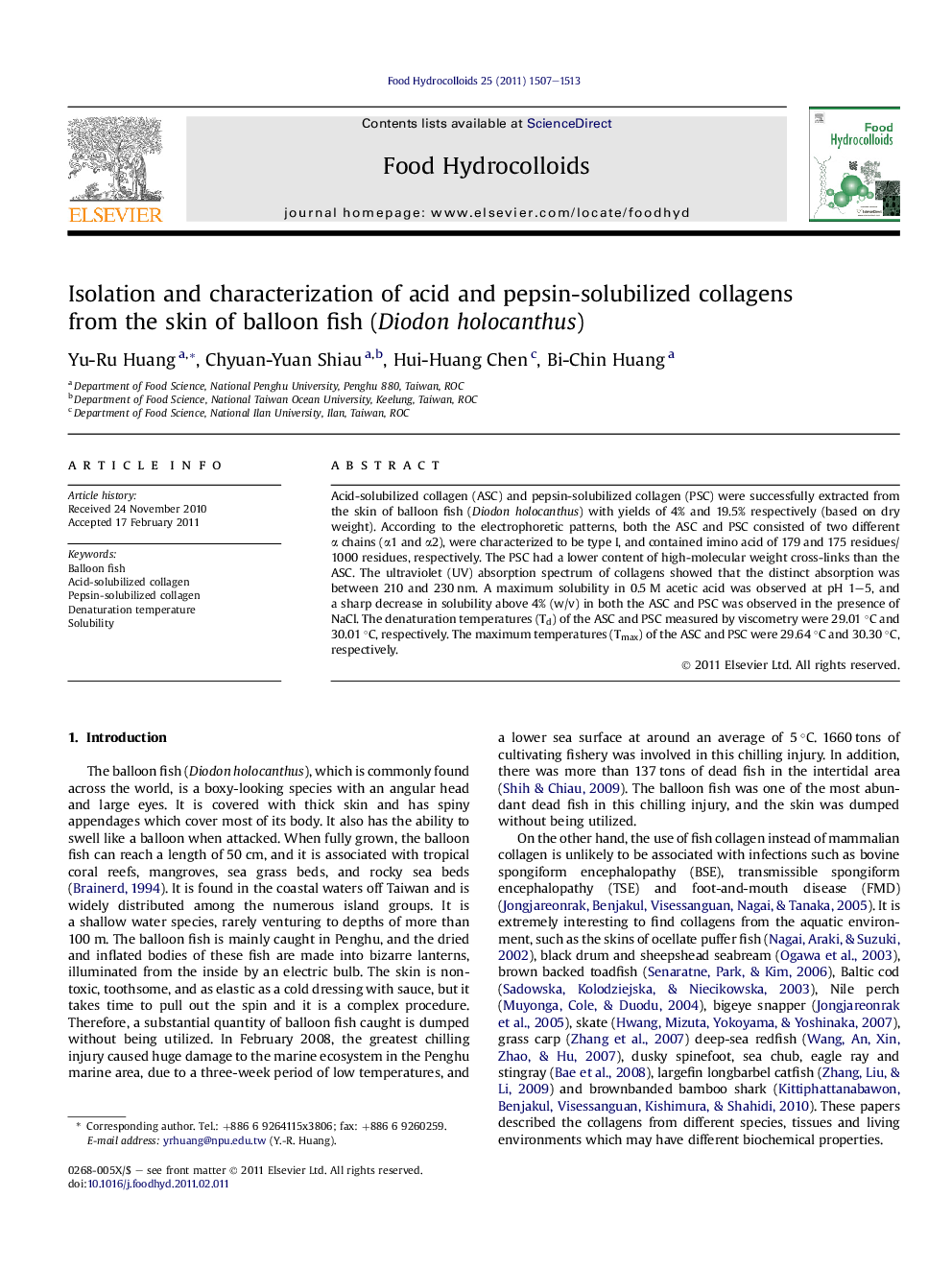| Article ID | Journal | Published Year | Pages | File Type |
|---|---|---|---|---|
| 604550 | Food Hydrocolloids | 2011 | 7 Pages |
Acid-solubilized collagen (ASC) and pepsin-solubilized collagen (PSC) were successfully extracted from the skin of balloon fish (Diodon holocanthus) with yields of 4% and 19.5% respectively (based on dry weight). According to the electrophoretic patterns, both the ASC and PSC consisted of two different α chains (α1 and α2), were characterized to be type I, and contained imino acid of 179 and 175 residues/1000 residues, respectively. The PSC had a lower content of high-molecular weight cross-links than the ASC. The ultraviolet (UV) absorption spectrum of collagens showed that the distinct absorption was between 210 and 230 nm. A maximum solubility in 0.5 M acetic acid was observed at pH 1–5, and a sharp decrease in solubility above 4% (w/v) in both the ASC and PSC was observed in the presence of NaCl. The denaturation temperatures (Td) of the ASC and PSC measured by viscometry were 29.01 °C and 30.01 °C, respectively. The maximum temperatures (Tmax) of the ASC and PSC were 29.64 °C and 30.30 °C, respectively.
Graphical abstract• The skin collagens of balloon fish were classified as type І collagen. • ASC and PSC contained imino acid of 179 and 175 residues/1000 residues, respectively. • Both the Td and Tmax of ASC and PSC were about 29 °C and 30 °C, respectively. • ASC and PSC showed high solubility at acidic pH and lost the solubility with increasing NaCl concentrations.Figure optionsDownload full-size imageDownload as PowerPoint slide
